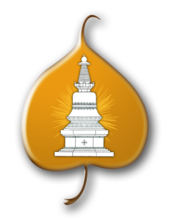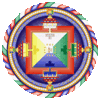Resources for Illness and Dying
Thinking Ahead
As part of Buddhist practice, there is a lot of benefit in preparing for death. There are a tremendous amount of resources available, so this is only a starting point for some of the most important aspects of preparing both as a caregiver for others and for your own death. It can be overwhelming to deal with the issues when a health crisis or death happens, so reading and planning now is crucial. You can be of most benefit by having a calm mind, so being prepared both from a spiritual and worldly perspective helps.
Dharma Will
Preparing a Dharma Will creates a record of your wishes for spiritual support before, during and after your death, to be followed by those supporting you during this transition.
Kadampa Center Dharma Will Fill out this form to have your wishes on record for our sangha to access.
Advice and Support from Lama Zopa Rinpoche, Kadampa Center, and the FPMT Community
Immediate support
If you are currently in need for quick practices and advice for dying and the dead, go to FPMT’s website, where they have compiled advice from Lama Zopa Rinpoche and offer free downloads of the most important practices to do. Through this page, prayers can be requested for the recently deceased from His Holiness the Dalai Lama, Lama Zopa Rinpoche and the FPMT community (and a donation is recommended as an offering to His Holiness and to cover the costs of stupa tsa tsas made at Lama Zopa Rinpoche’s house.)
Kadampa Center can offer a variety of personalized options for the dying and the dead, including adding names to our prayer list, special prayers and pujas (at the center, Sera Je Monastery, or Kopan Monastery), and a memorial service. These can be organized by contacting support@kadampa-center.org.
Names of the ill and dying can be added at any time to Kadampa Center's prayer list, which is read at teachings, pujas, placed on the altar, and sent out on a private e-list to center members for prayers. Send the person or pet's name and health status to dedications@kadampa-center.org.
Advance Support
Now is the time to be preparing, because time of death is uncertain but death is definite. Kadampa Center’s former chaplain, Emily Paynter, created a workbook, Supporting Positive Mind at Death, to help create the conditions for a positive mind at the time of your death. It’s a useful tool both for thinking ahead as well as starting conversations with people close to you.
In addition, Kadampa Center’s community is there to support you at the time of death. To indicate your wishes how we can support you, fill out the form Spiritual Needs at Time of Death and return it to support@kadampa-center.org. The information will be kept confidential.
Amitabha Hospice in New Zealand has online resources for the Buddhist community, including a Dharma Will that can be used to indicate what prayers and practices you’d like recited at the time of your death. A copy of this can be included with the above Spiritual Needs form and given to our office staff to keep on confidential file so Kadampa Center can help.
General Resources
Kadampa Center has an extensive special section in our library dedicated to resources for caregiving, illness, death, dying and grieving available for members to check out for free.
As a starting point, the Project Compassion Resource Guide is an outstanding resource that addresses all the stages of aging, illness, death and grief. For each section, further resources are provided with information including agencies such as hospice, support groups, senior care, organ donation and legal issues, and more. Project Compassion is based out of Chapel Hill, so the resources are primarily focused on North Carolina. Since so many important resources are already in this free guide, we did not list them all on this website as well.
AARP has extensive resources on health and caregiving. Their caregiver resource center has worksheets and advice how to do your best as a caregiver.
Here is a helpful government website for all county information.
Advance Care Planning
Paperwork and Legal Forms
Paperwork is an unavoidable part of life and death. Filling out (and updating!) all your important basic information can help relatives and caregivers handle your affairs in a crisis. H.E.L.P. offers this free Planning Guide to bring all this information together. They have other great free resources, but be aware they are based in California so for legal resources see the above links for NC specific advice.
The North Carolina Department of the Secretary of State provides free advance directive forms and how to register them (there is a small registration fee). Here you can address organ donation, advance instruction for mental health, health care power of attorney and advance directive for treatment. You can usually get forms notarized at your bank for free. In addition, the American Bar Association also provides a free Legal Guide for the Seriously Ill to help navigate legal basics.
A similar but more extensive workbook, Passing on Thoughtfully, is available for purchase through Project Compassion. This workbook allows you to leave a written record of your important legal and health affairs, final plans, people to be notified, etc. This a precious gift to caregivers and relatives in an emergency.
The Five Wishes document has become the standard for expressing wishes for care at the end of life. While this is not a free resource, it is inexpensive and very helpful.
Organ Donation
Lama Zopa Rinpoche says organ donation is good “because you know that that body is going to make charity, and it’s very good for the mind; very good to keep the mind in a state of bodhicitta. It helps for that.” Rinpoche also gives advice what to do to the body before the organs are harvested.
For more information about registering in North Carolina for organ donation, visit Carolina Donor Services.
Funerals
While Kadampa Center has not used and doesn’t specifically endorse any funeral homes or organizations, some options to start are the Cremation Society of North Carolina and City of Oaks Cremation. Both of these organizations have on-site crematoriums, unlike traditional funeral homes. Their sites offer helpful resources including preplanning and expressing your wishes if you want to be cremated. This is commonly done in Buddhism so the ashes of the deceased can be used in additional beneficial rituals.
Ashes of the Deceased
Geshe Gelek recommends that the ashes be scattered in the ocean and/or on a high mountain. When scattered in the ocean, you wish that the deceased has an ocean of wisdom in the next life. If you scatter the ashes on a mountain, you are wishing a high rebirth for the deceased.
Ashes can also be purified in a jangwa puja to be used in holy objects or to bless sentient beings. If you are considering this practice, it is very important you have a plan for the blessed ashes and where they will be placed (such as making tsa tsas, placing them in stupas or a tsa tsa house). In the US, Land of Medicine Buddha offers the jangwa puja and memorial stupas for ashes. Learn more about this practice in the FPMT booklet Three Articles on How to Help the Dying and the Dead.
Help for Animals and Dying Pets
Lama Zopa Rinpoche gives a lot of advice about benefitting animals, summarized in this brief document on benefitting animals.
Buddhist pet owners face many difficult choices - an excellent article about these issues is available from Mandala Magazine. There are vets and private companies that provide hospice help and pain management for caring for a dying animal in the home. FPMT offers a CD or .mp3 download of special prayers for animals during their life and if ill or at the time of death. In addition, Lama Zopa Rinpoche gave advice about euthanasia for pets. There are companies who specialize in pet cremation, which can be arranged directly or through your vet's office.
Further Reading
Kadampa Center’s bookstore has books on death, dying and grief. Some recommended titles are in the attached booklist.
Ven. Amy Miller, an FPMT teacher and experience hospice worker, also has a list of recommended books for making friends with death.
FPMT’s Foundation Store also has many helpful ritual items, books and resources.



